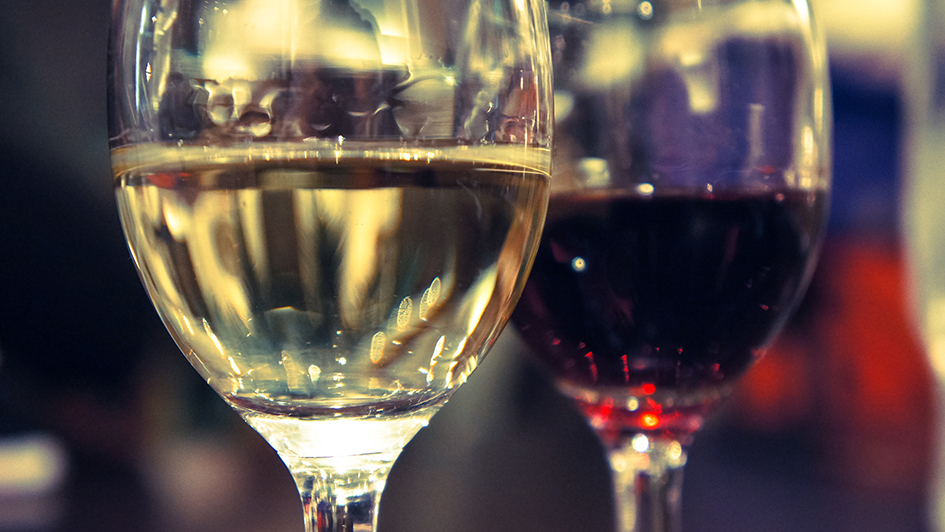
Alcohol is mainstream, but for how much longer? (photo: uetchy/CC-BY-2.0)
For every new baby born, for every minor victory in life won and lost, when we get married, when we get divorced, when we baptise our children and bury our dead, there is an acceptable poison to proffer up.
In fact, many people would say it's rude not to. Not only do we offer it for significant occasions, but any gathering will do: an after-work meet-up, a work conference, a relaxing evening at home – maybe you have it in your hand now?
Alcohol is omnipresent in Western society, an acceptable poison, culturally ingrained with special indemnity. Indeed, public opinion is, overall, positive towards alcohol – when drunk in moderation, of course.
So the recent drumbeat of warnings about alcohol being a risk factor for cancer, even when drunk sensibly, creates an inconvenient dichotomy.
Our heads see that moderate alcohol consumption could be bad for our health, and attitudes need to change, as with smoking 50 plus years ago.
Dry run
But our hearts see the cultural and social significance. Imagine a wedding with no toast to the bride and groom? Or an evening down the pub, chatting with friends – would it be as much fun if the pub was dry?
There is also a lot of confusion and hypocrisy surrounding alcohol – it really is ridiculous. The government advises us that there is no safe level of alcohol to consume, and that all drinking carries a risk, but then still publishes guidelines on how much we can have.
And comments from the Chief Medical Officer, Dame Sally Davies, that we should ask ourselves before every drink, "Do I want this glass of wine or do I want to raise my cancer risk?" are beautifully provocative but absurd. I don't think it helps the public to play mind games, and make every drink a life and death decision, riddled with guilt.
Special status
Putting aside the mixed messages however, Dame Sally and co do have a point. Why do we continue to pour a known cancer-causing poison down our necks? Would any other harmful substance be given such a special status – an aperitif of radioactive polonium-210 before the wedding breakfast sir?
Or less ridiculous perhaps, what about a silver platter of cigarettes offered around, with cultural pressure to join in and have a puff? This would be completely unacceptable. And should alcohol, a known carcinogen, still be given out at cancer conferences?
Next consider government policy, which has been consistently soft on alcohol, freezing duty on booze budget after budget, while tax on ciggies goes through the roof.
Nanny state?
Minimum alcohol pricing was also strangely resisted. The government appears scared and confused in its policy on alcohol, paralysed by the cries of being a ‘nanny state’.
And while it's true that the worst of the binge-drinking culture has abated, with young people now drinking less, there is instead a bulging group of moderate drinkers.
So how do we resolve this conflict?
Should alcohol consumption be marginalised, with negative publicity campaigns and tax hikes like smoking? This would surely save lives and improve public health. Heck, why not make the drinkers stand outside next to the smokers, or have them sit in separate rooms, so their noisy cheer doesn't pollute the ears of sober guests.
Or alternatively should the risk of moderate drinking just be accepted, since, after all, every day we get older our cancer risk goes up. Maybe Dame Sally should ask herself: "Do I want to live my life today, or do I want to increase my cancer risk?"
‘A crutch for humanity’
The answer to this question lies deep in the roots of our society, in our perception of alcohol and the kind of future we want.
In a rapidly modernising world alcohol may find its place increasingly hard to defend: muscled out by the smoothie bars, bikram yoga and a life lived increasingly online. In this context alcohol starts to look like a relic of the past, a crutch used by humanity as it rose out of its post-industrial ashes into the brave new world.
I wouldn’t rush to write alcohol off, however. It will no doubt try to evolve to survive. Looking through a sentimental lens, in an increasingly depersonalised and ‘fake’ social media world, you have to admire its historical purity. Why not sit and have a drink with friends or colleagues, like our ancestors have done for thousands of years. The problems in life may have changed, from failed harvests or the Victorian workhouse, but the need for merry comradery still burns strong.
Personal risk
Ultimately it comes down to each individual; it’s their life and their choice. People will live their life events, toasting and commiserating them as they see fit. The veil is slowly lifting on alcohol – its link to cancer is challenging our views. How much longer society will continue to view it as an acceptable poison remains to be seen.
For now alcohol should stop being an automatic cultural choice; people who want to reject it should be emboldened to do so. But for those who don't and accept the risk, they should be allowed to enjoy it in peace!
This article was shortlisted for the Professor Mel Greaves Science Writers of the Year 2016 prize, originally presented at the ICR annual conference in June 2016.
Kevin Litchfield is a PhD student at the ICR.
comments powered by